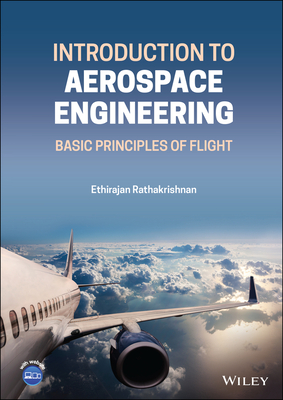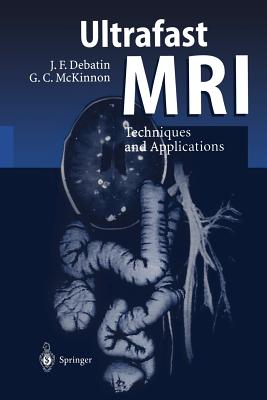Advances in Aeronautical Informatics: Technologies Towards Flight 4.0
暫譯: 航空資訊學的進展:邁向飛行 4.0 的技術
Durak, Umut, Becker, Jurgen, Hartmann, Sven
- 出版商: Springer
- 出版日期: 2019-01-03
- 售價: $3,520
- 貴賓價: 9.5 折 $3,344
- 語言: 英文
- 頁數: 156
- 裝訂: Quality Paper - also called trade paper
- ISBN: 3030091384
- ISBN-13: 9783030091385
海外代購書籍(需單獨結帳)
商品描述
The history of flight started with the pioneer era. The introduction of mechanical controls (including hydraulics) then led to the second era. Later, with the utilization of computers and automation in aircraft, we reached the third era. Now, we are moving towards the fourth era of flight, namely Flight 4.0, which is characterized by “smart” and “connected” aircraft that extensively exploit emerging information and communication technologies.
Aeronautical informatics is advancing rapidly through the synergy between information and communication technologies and aeronautics. Multi-core avionic platforms, wireless avionics networking, service-oriented architectures and IoT, data sciences and semantic infrastructures are shaping systems to come. Increasing autonomy requirements are challenging the community to investigate new ways to assure safety. Modern software engineering methodologies and real-time software techniques are altering the established development practice. Universities are starting to align their aerospace engineering and computer science curriculums in order to address this synergy.
This book is a unique compilation of advancements in aeronautical informatics, introducing the changing technology landscape of flight with respect to a new push in information and communication technology.
商品描述(中文翻譯)
飛行的歷史始於先驅時代。機械控制(包括液壓系統)的引入隨後導致了第二個時代。後來,隨著計算機和自動化在飛機中的應用,我們達到了第三個時代。現在,我們正朝著第四個飛行時代邁進,即飛行 4.0,這一時代的特徵是“智慧型”和“連接型”的飛機,廣泛利用新興的信息和通信技術。
航空資訊學正在通過信息和通信技術與航空學之間的協同迅速發展。多核心航空電子平台、無線航空電子網絡、面向服務的架構和物聯網、數據科學及語義基礎設施正在塑造未來的系統。日益增加的自主性要求挑戰著社群,促使其探索新的安全保障方式。現代軟體工程方法論和即時軟體技術正在改變既有的開發實踐。大學開始調整其航空工程和計算機科學課程,以應對這種協同。
本書是航空資訊學進展的獨特彙編,介紹了飛行技術景觀的變化,並針對信息和通信技術的新推動進行探討。
作者簡介
Umut Durak is a research scientist in the Institute of Flight Systems at the German Aerospace Center (DLR). He is also an adjunct faculty in the Department of Informatics at Clausthal University of Technology. His research focus is modeling and simulation based approaches in aeronautics. He received his BS, MS and Ph.D. degrees in Mechanical Engineering from Middle East Technical University (METU) in Turkey. He is a member of the Society for Computer Simulation International (SCS) and Arbeitsgemeinschaft Simulation (ASIM) and a senior member of the American Institute of Aeronautics and Astronautics (AIAA). And, he is a part of AIAA Modeling and Simulation Technical Committee and editorial teams of the Simulation: Transactions of the Society for Modeling and Simulation International; and the International Journal of Modeling, Simulation, and Scientific Computing.
Jürgen Becker received the Diploma and Ph.D. (Dr.-Ing.) degree from Technical University Kaiserslautern, Germany. He is a full professor for embedded electronic systems and Head of the Institute for Information Processing Technologies (ITIV) at the Karlsruhe Institute of Technology (KIT). From 2005-2009 he has been appointed as Vice President for Education at Universitaet Karlsruhe (TH) and Chief Higher Education Officer (CHEO) at KIT from 2009-2012. Since 2012 till 2014 he served as Secretary General of CLUSTER, an association of 12 leading technical universities in Europe. In 2013 Prof. Becker received the Honorary Doctor award (Dr. h.c.) from Technical University Budapest (Hungary). His research interests include Hardware/Software Systems-on-Chip (SoC), Cyber-Physical Systems (CPS), Heterogenous Multicore (MC) Architectures, Reconfigurable Computing, Fast Data Acquisition, Filtering and Storage for Semiconductor Detectors. He authored more than 400 papers in international journals and conferences.
Sven Hartman received his Ph.D. in 1996 and his D.Sc. in 2001, both from the University of Rostock (Germany). From 2002-2007 he worked first as an associate professor, then full professor for information systems at Massey University (New Zealand). Since 2008 he is a full professor of computer science and chair of databases and information systems at Clausthal University of Technology (Germany). There he is also serving as academic dean at the Faculty of Mathematics/Informatics and Mechanical Engineering since 2013. His research interests include databases and data management, conceptual modelling, big data, optimal discrete structures and algorithms, and information systems and services.
Nikolaos S. Voros received his Diploma in Computer and Informatics Engineering, in 1996, and his PhD degree, in 2001, from University of Patras, Greece. His research interests fall in the area of Cyberphysical/embedded system design, and include specification techniques, hardware-software co-design, formal refinement techniques, and reuse practices. Dr Voros is Associate Professor at Technological Institute of Western Greece, Department of Computer and Informatics Engineering where he is leading the Embedded Systems Design and Applications Laboratory (http: //esda-lab.cied.teiwest.gr). During the last years, Dr Voros has participated in more than 30 research projects funded by European Commission either as project manager or as scientific advisor. He has served as scientific coordinator of FP7 STREP Project 287733 ALMA and ICT coordinator for FP7 STREP Project 287720 ARMOR; currently, Prof. Voros is the scientific coordinator of Horizon 2020 Project ARGO and the technical coordinator of Horizon 2020 Project RADIO. Dr Voros has published significant number of books and referred articles in international journals and conferences, while he is also editor of the books «System Level Design with Reuse of System IP», «System Level Design of Reconfigurable Systems-on-Chip» and «Components and Services for IoT platforms: paving the way for IoT standards» published by Springer. He has also served as General Chair in well-known international conferences like the IEEE Computer Society Annual Symposium on VLSI (2010) and the 14th International Symposium on Applied Reconfigurable Computing (2018). He was also the Program Co-Chair for 24th International Conference on Field Programmable Logic and Applications (2014) and for the 7th International Workshop on Reconfigurable and Communication-centric Systems-on-Chip (2012).
作者簡介(中文翻譯)
Umut Durak 是德國航空航天中心 (DLR) 飛行系統研究所的研究科學家。他同時也是克勞斯塔爾科技大學資訊學系的兼任教員。他的研究重點是航空領域中的建模和模擬方法。他在土耳其中東科技大學 (METU) 獲得機械工程的學士、碩士和博士學位。他是國際計算機模擬學會 (SCS) 和模擬工作組 (ASIM) 的成員,以及美國航空航天學會 (AIAA) 的資深會員。此外,他還是 AIAA 建模與模擬技術委員會的成員,以及《模擬:國際模擬與建模學會的交易》和《國際建模、模擬與科學計算期刊》的編輯團隊成員。
Jürgen Becker 獲得德國凱瑟斯勞滕科技大學的文憑和博士學位 (Dr.-Ing.)。他是嵌入式電子系統的全職教授,並擔任卡爾斯魯厄理工學院 (KIT) 資訊處理技術研究所 (ITIV) 的所長。從 2005 年到 2009 年,他被任命為卡爾斯魯厄大學 (TH) 的教育副校長,並於 2009 年至 2012 年擔任 KIT 的首席高等教育官 (CHEO)。自 2012 年至 2014 年,他擔任 CLUSTER 的秘書長,該協會由 12 所歐洲領先的技術大學組成。2013 年,Becker 教授獲得匈牙利布達佩斯科技大學的榮譽博士 (Dr. h.c.) 獎。他的研究興趣包括硬體/軟體系統單晶片 (SoC)、網路物理系統 (CPS)、異構多核心 (MC) 架構、可重構計算、快速數據採集、過濾和半導體探測器的存儲。他在國際期刊和會議上發表了超過 400 篇論文。
Sven Hartman 於 1996 年獲得博士學位,2001 年獲得科學博士學位 (D.Sc.),均來自德國羅斯托克大學。從 2002 年到 2007 年,他先後擔任紐西蘭梅西大學的副教授和全職教授,專注於資訊系統。自 2008 年以來,他是德國克勞斯塔爾科技大學的計算機科學全職教授,並擔任數據庫和資訊系統的系主任。自 2013 年以來,他還擔任數學/資訊學和機械工程學院的學術院長。他的研究興趣包括數據庫和數據管理、概念建模、大數據、最佳離散結構和算法,以及資訊系統和服務。
Nikolaos S. Voros 於 1996 年獲得計算機與資訊工程的文憑,並於 2001 年獲得希臘帕特雷大學的博士學位。他的研究興趣集中在網路物理/嵌入式系統設計領域,包括規範技術、硬體-軟體共同設計、形式化精煉技術和重用實踐。Voros 博士是西希臘科技學院計算機與資訊工程系的副教授,並領導嵌入式系統設計與應用實驗室 (http://esda-lab.cied.teiwest.gr)。在過去幾年中,Voros 博士參與了超過 30 個由歐洲委員會資助的研究項目,擔任項目經理或科學顧問。他曾擔任 FP7 STREP 項目 287733 ALMA 的科學協調員,以及 FP7 STREP 項目 287720 ARMOR 的 ICT 協調員;目前,Voros 教授是 Horizon 2020 項目 ARGO 的科學協調員,以及 Horizon 2020 項目 RADIO 的技術協調員。Voros 博士在國際期刊和會議上發表了大量書籍和參考文章,同時也是《系統級設計與系統 IP 重用》、《可重構系統單晶片的系統級設計》和《物聯網平台的組件與服務:為物聯網標準鋪路》等書籍的編輯,這些書籍由 Springer 出版。他還曾擔任知名國際會議的總主席,如 IEEE 計算機學會 VLSI 年會 (2010) 和第 14 屆應用可重構計算國際研討會 (2018)。他還擔任第 24 屆國際現場可編程邏輯與應用會議 (2014) 和第 7 屆國際可重構與通信中心系統單晶片研討會 (2012) 的程序共同主席。

















